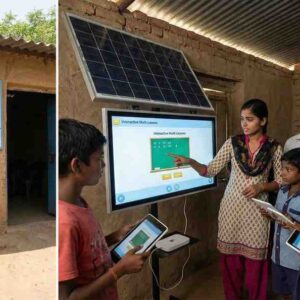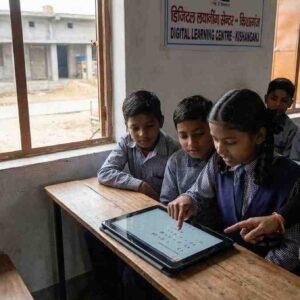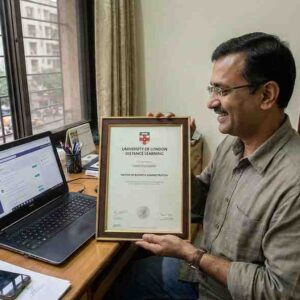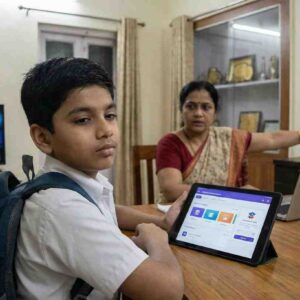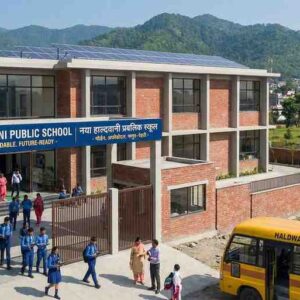New Delhi, India – 2025
In an era where the dynamics of work and life are rapidly evolving, the age-old belief that education is solely a gateway to stable employment is increasingly being challenged. TheNational Education Policy (NEP) 2020has amplified this debate, encouraging parents to rethink education’s purpose. As India moves towards a knowledge-driven economy, it’s time to explore why limiting education to job preparation undermines its true power and potential.
Education: A Journey, Not a Destination
1. Moving Beyond the “Degree-for-Job” Mentality:
For decades, many parents in India have viewed education as a means to an end—a secure job, often in engineering, medicine, or government services. However, the NEP shifts the focus from rote memorization to fostering curiosity, creativity, and critical thinking. Education is no longer just about earning a living; it’s aboutlearning to live—to think critically, solve problems, and adapt to a rapidly changing world.
2. Knowledge as a Lifelong Asset:
Jobs may come and go, but the skills and knowledge gained through education remain. In a world increasingly driven by technology and innovation, students need to be equipped with skills that transcend specific industries. An education that emphasizes adaptability, emotional intelligence, and collaboration prepares students for careers that don’t even exist yet.
The Risks of Narrowing Education to Jobs
3. The “Job-Ready” Trap:
Parents often push their children into fields perceived as “safe” or “lucrative.” However, the job market is unpredictable. Industries rise and fall, and roles once deemed essential may become obsolete (remember typists and stenographers?). Limiting education to a narrow career path can leave students unprepared for the challenges of tomorrow.
4. Neglecting Creativity and Passion:
When education becomes solely about employment, creativity and passion often take a backseat. This has led to generations of students pursuing degrees in fields they have no genuine interest in, resulting in disengagement and underperformance. A holistic education, as envisioned by the NEP, encourages students to explore diverse subjects and discover their true interests.
NEP 2020: Redefining the Purpose of Education
5. Multidisciplinary Learning:
The NEP promotes a multidisciplinary approach to education, allowing students to combine subjects like physics with philosophy or economics with art. This not only broadens their horizons but also fosters critical thinking and problem-solving skills. Such an approach prepares students forlife’s complexities, not just for a paycheck.
6. Emphasis on Real-World Skills:
The NEP emphasizes skills like digital literacy, entrepreneurship, and ethical decision-making, which are essential in a rapidly evolving job market. It also integrates internships and experiential learning, ensuring students are not only employable but also empowered to create their own opportunities.
Why Parents Must Reconsider Their Role
7. Nurturing Curiosity, Not Just Compliance:
Parents play a pivotal role in shaping their children’s educational journey. Instead of restricting education to predefined career paths, they should encourage exploration and innovation. This mindset fosters resilience and adaptability, traits critical for navigating the uncertainties of life.
8. Supporting Holistic Growth:
Success is no longer defined by a job title but by personal fulfillment, creativity, and contribution to society. Parents who prioritize these values create environments where their children can thrive emotionally, intellectually, and professionally.
Conclusion: Education for the Future, Not Just the Job Market
In a world whereartificial intelligence, automation, and globalizationare reshaping industries, education must evolve to prepare students for more than just jobs. It must empower them with the tools to think critically, adapt, and contribute meaningfully to society.
The NEP offers a blueprint for this transformation, urging parents to shift their mindset from “job-ready” to “life-ready.” By embracing the broader purpose of education, parents can ensure that their children are not just workers in tomorrow’s economy, but leaders, innovators, and changemakers in a better world.




